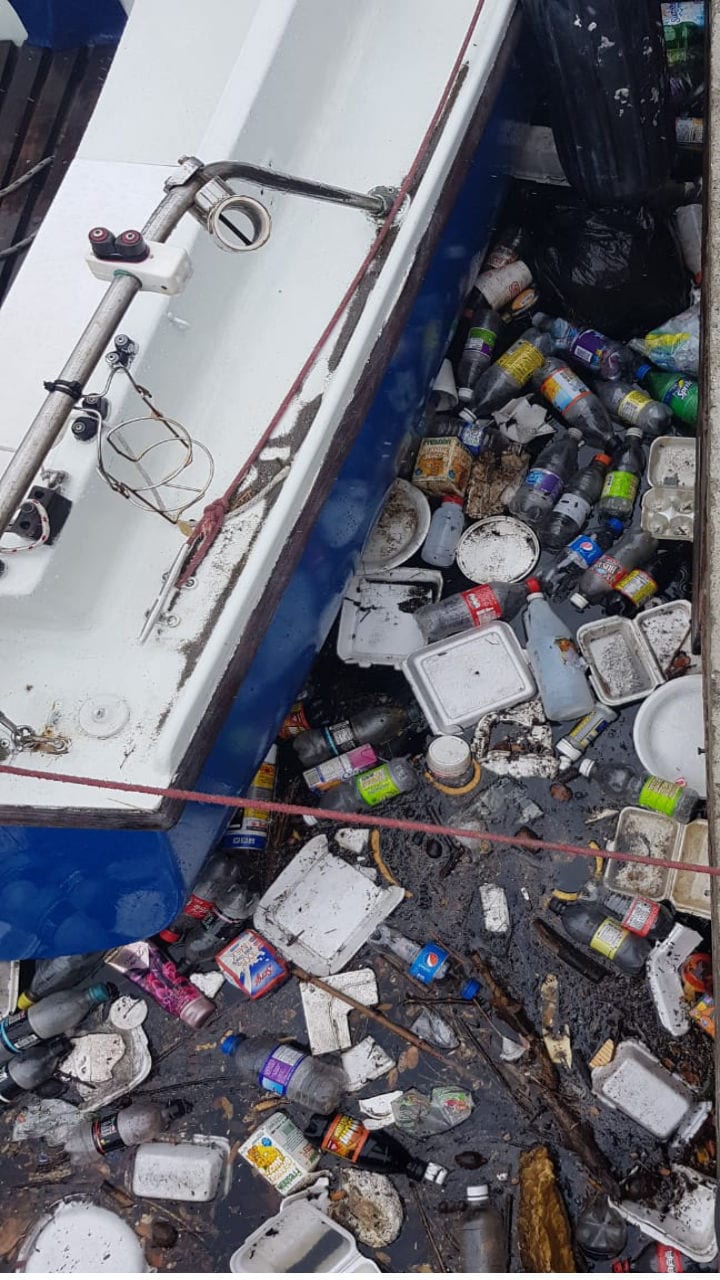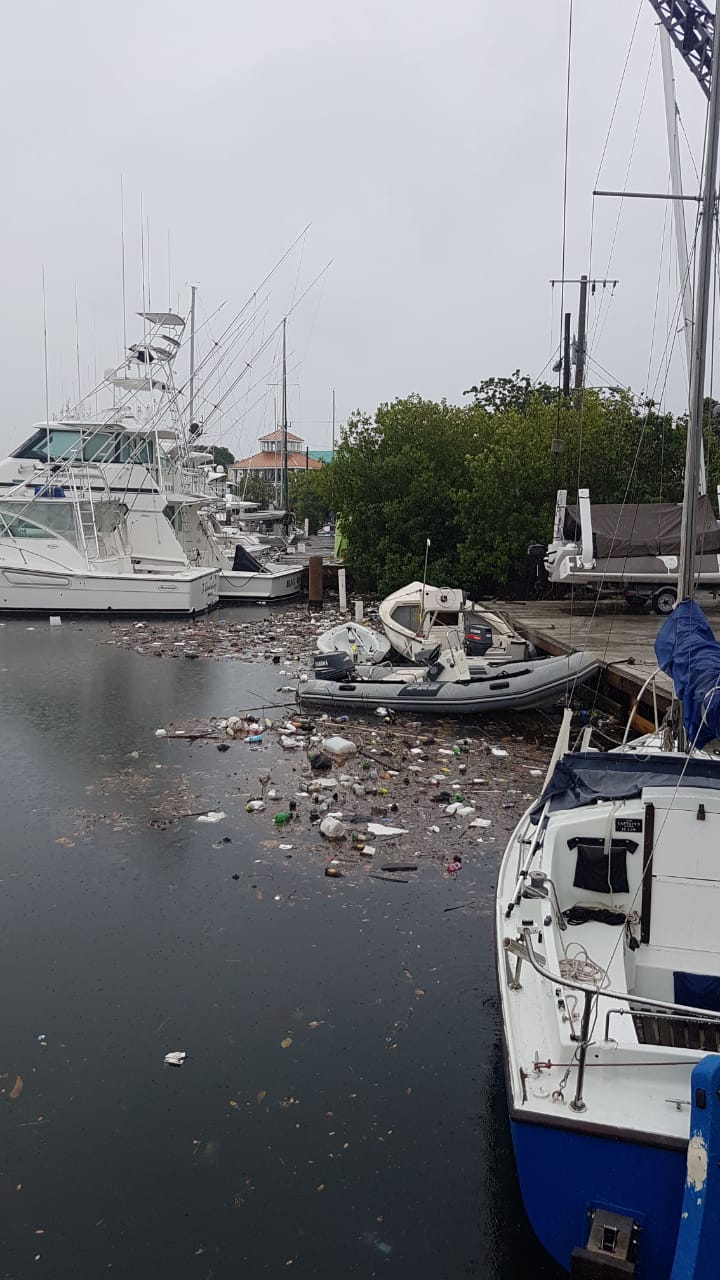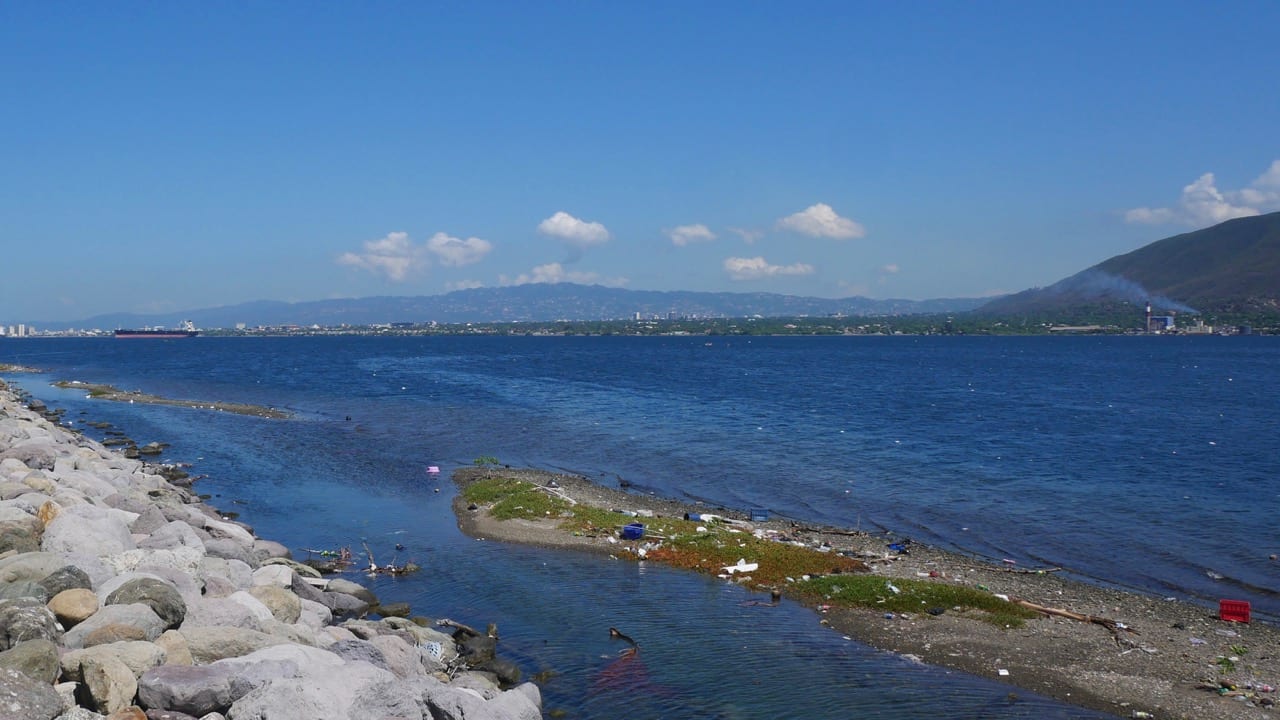We can clean the Kingston Harbour.
Yes – we can. I have to confess: I believe that we can clean the Kingston Harbour Bay (KHB). This confidence in the possibility is tested quite hard after every rain. Last Thursday it was time again – at this time it was bad. For weeks there was no rain and therefore no waste disposal “a la Kingstonian.”
The garbage of weeks was washed in only one day by the 19 Gullies into the bay: suitcases, refrigerators (!?), and of course ubiquitous the King of Waste, the plastic bottle.
Have you ever wished to walk over water? What was reserved for Jesus (Matthew 14:22-33) can be practiced after a rainy day in Kingston Harbour. You only have to jump from one plastic island to the next.
Importance of the Kingston Harbour
When I started to understand more about the significance of the Kingston Harbour I could see that bay was an important locus of recreation for the many who lived on its rim, as well as for the thousands who would commute from far and wide. The coastline has an industrial belt comprised of shipping, port, commercial real estate, recreational, residential and fisheries activities. All of that in a unique natural ecosystem of sensitive marine habitats within and around the Harbour, including mangroves, coral reefs, cays, and seagrass beds.
People told me that the harbour sported important beaches – Sirgany, Gunboat Beach, Port Henderson, Hunt’s Bay, and Jung San. I saw pictures of water skiing in the bay.
I met people who practiced this kind of sport. I was in contact with a marine biologist who used to swim and snorkel the coral reefs in front of the CMU. I learned about a ‘Cross the Harbour (swimming) Race’ from Bournemouth Bath to Gunboat Beach. After the GraceKennedy Foundation lecture, I heard two people who explained that they had taken part in the competition.
Kingston Harbour under continuous threat
Kingston Harbour has been under constant threat from solid waste pollution for decades. Much of this garbage finds its way into the natural harbour through complex gully and river drainage systems crisscrossing Kingston, St Andrew, and Portmore. Fingers are pointed in all directions, but rarely is anyone held accountable, even when local residents have a good idea where the pollution is coming from.
The waste is mainly from four sources:
(1) untreated or improperly treated sewage;
(2) industrial discharges into the harbour, as well as run-off from solid-waste landfills receiving industrial waste;
(3) the dumping of untreated ship wastes, and
(4) agricultural run-off.
The Gully system
I learned that 19 gullies are leading to the Kingston Harbour Bay. The gullies and their tributaries drain a significant area of the city and the surrounding hills and have become a dumping ground for large amounts of solid waste and debris.
Garbage in the gully is predominantly domestic waste, specifically plastic bottles, plastic bags, and Styrofoam food containers. The trash is either dumped directly into the gully, or washes into the gully from open lots and streets by way of natural and human-made drainage channels. During heavy rainfall, much of the garbage dumped in gullies washes into the Kingston Harbour.
Knowledge is not the problem
I basically don’t think that knowledge is a big problem. A public poll will show that more or less everyone is in favor of a clean and worth living habour. For me, the much bigger problem is that even though more or less everyone is concerned about the pollution of Kingston Harbour, nobody wants to spend much as 1.000 JMD to address it.
Maybe we are concerned about it, but we’re not concerned enough. Concerned, but fundamentally complacent. We worry about the future of the harbour. But how much precisely? Enough to compromise our living standards, to change our minds? How much value would we like to assign to the future?
How to get really engaged? How to make the safeguarding of the harbour to a first-order political priority?
Talking bluntly about the projects for our near-term future is the key issue. We need to do everything we can to have an impact.
Any action requires political consensus. Such consensus may be difficult to achieve.?
Debris after rainfall at the Royal Jamaica Yacht Club


The Government will have to do much better – but we too!
We need to adopt the technology, which will restore the full value of Kingston Harbour. Kingston Harbour can be cleaned up if the pollution dumped into it can be substantially reduced and in the Harbour itself, we need a multidimensional approach: clean-up activities, waste separation and collection, Jambin’s, Oysters and floating waste collectors.
And we have young, highly motivated people, like Leneka Rhoden and her iAspire initiative. Join and support her.
We have the know-how, we have the necessary technology, we could somehow mobilize the required financial funds. World Bank has in is ProBlue Fund more than 100 million USD.
What is lacking is the political will. The issue is not at the top of the list, not of a high political priority. Let’s change that.
The restoration and protection of the Kingston Harbour Bay should be a national priority. Why do I not get rid of the feeling that there is a lack of political will?
My favorite waste collector
The picture below is a Before and After slider which is showing a spot at Palisadoes Highway between the Harbour Roundabout and the Entrance to the CMU and RJYC. I took a picture of that same spot every morning on my way to the University.
The Before picture (left) shows the shoreline after an average rainy day/night in the Kingston area. I want to draw your attention to the piece of tree in the middle of both pictures. He is my favorite natural waste collector and capture. Why are we not mimicking his ability to withhold the waste? Why I saying that? Because what you don’t know the picture on the right side shows a day in early October 2018 and the picture on the left side is taken in February 2019. Therefore, for more than half a year that piece of an ancient tree is doing an excellent job. Of course, it will not help to change the mentality of the producer of the waste. But it will make the job (to collect the debris out of the water) much more manageable.

